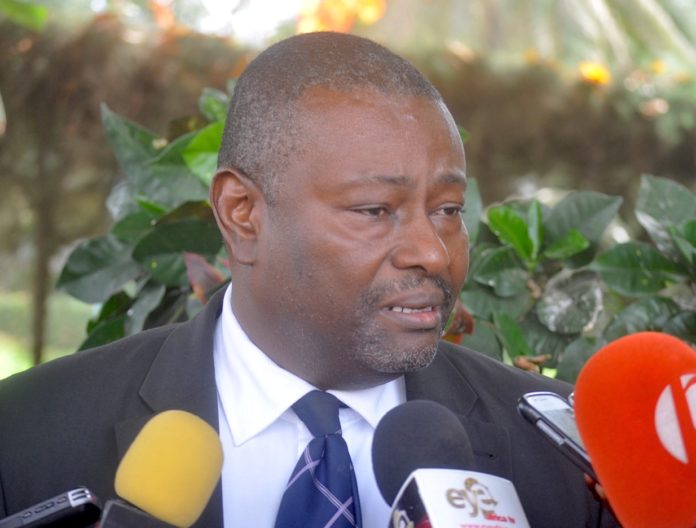By Momodou Jarju
The Gambia’s National Human Rights Commission (NHRC) will propose some changes or amendments on its 2017 act in the nearest future.
The 2017 act established the rights’ commission- an independent entity that would serve as a defender of human rights in The Gambia.
The proposed changes would be tabled before parliament for consideration, according to the chairperson of the commission, Emmanuel Joof.
Mr. Joof was speaking recently in Banjul during a meeting with the Standing Committee of the National Assembly on Human Rights and Constitutional Matters.
Under section 9, subsection (1) (a)
The provision states that (1) “The president may only remove a member of the Commission from office on the following grounds- (a) inability to perform the functions of his/ her office arising from infirmity of body or mindor from any other cause.”
Joof-led Commission proposed the deletion of the last few words “or from any other cause.” He said the rationale of the deletion is to ensure security of tenure for the Commission and protection from undue interference in the work of the Commission by the Government.
Furthermore, Joof said section 9 subsection (1) (a) to (e) of the Act, already stipulated comprehensive reasons for removal of commissioners.
Under section 26, subsection (1)
The provision states that “The Commission shall be headed by an Executive Secretary.” The commissioners’ proposed amendment reads “the Executive Secretary is the head of the Secretariat and the Chairperson is the head of the Commission.”
Chairperson Joof said the rationale is to avoid potential conflict of leadership and direction issues relating to the running of the NHRC.
Under section 6
The provision on the “tenure of office of members” states that “A member of the Commission shall hold office for three years and is eligible for re-appointment for one further term.”
The current commissioners are recommending the extension of the tenure of the Commissioners to five years.
Commissioner Joof said the Commission is a newly instituted body trying to create its Secretariat, crafting its rules of procedure and as per the Act; the commission has a loaded mandate as stipulated under section 12 of the Act.
Joof noted that in line with best practices and the Paris Principles, the average term for National Human Rights Institutions is between five to seven years.
“Examples: The Sierra Leone, Uganda, South Africa and Nigeria Human Rights Institutions have a minimum of five years. In fact with the Ghana Human Rights Commission, it is the same term like the Judges that is up-to seventy years and sixty five years respectively. Kenya is however a one term of 6 years for the Commissioners,” he said.
















